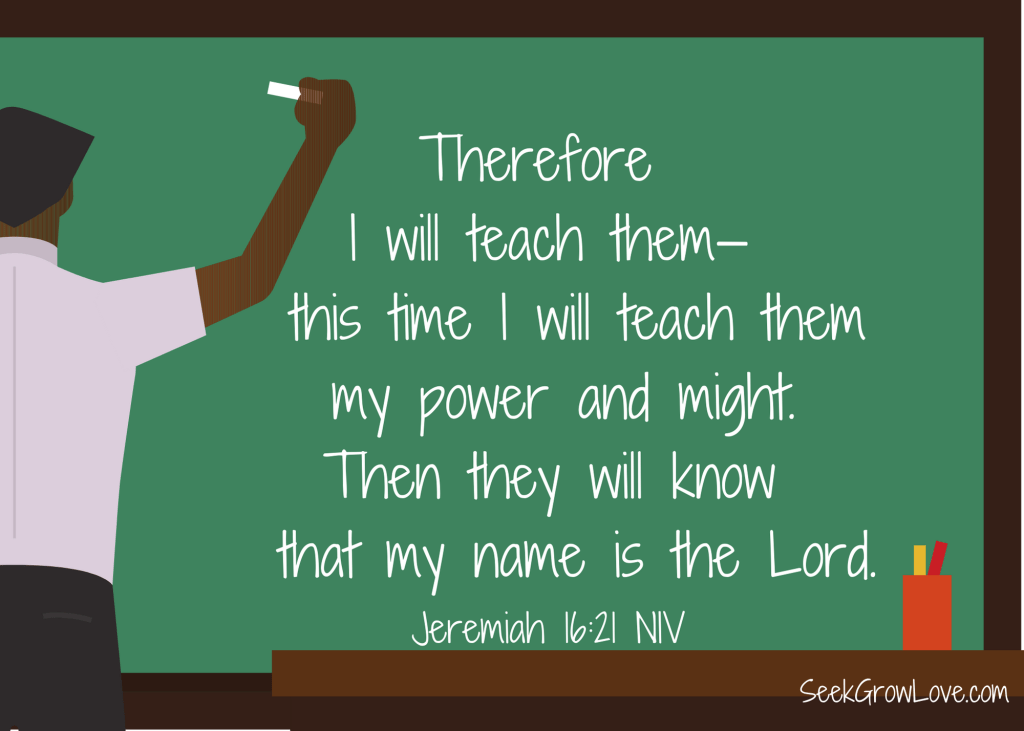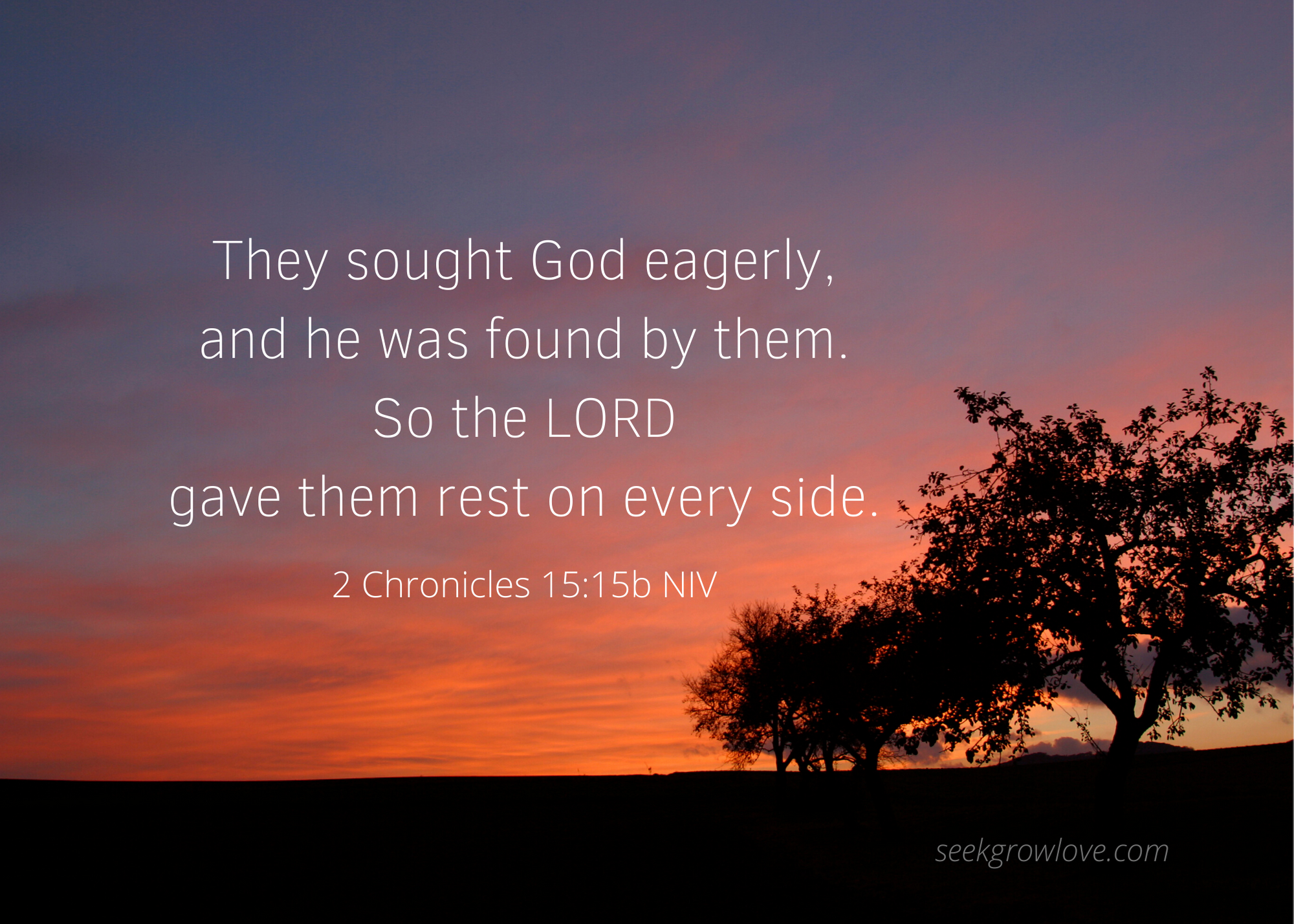
Jeremiah 15-16 and Psalm 105
Yesterday’s Psalm (104) gave a history lesson on creation. Today’s Psalm (105) gives an overview of God at work during the years of Abraham, Isaac, Jacob, Joseph and Moses. God makes a great history teacher – He was there when it all happened and He knows clearly the lessons that ought to be learned to celebrate the good parts of the past and to prevent the tragedy of history repeating the ugly parts. The inspired Psalmist wrote: “Remember the wonders he has done, his miracles, and the judgments he pronounced.” (Psalm 105:5). We would do well to remember and be in awe of the amazing miraculous ways God has worked in the past to help teach and provide for His children. And, we must not forget the times He has taught (and will teach) with punishment and judgment those who have turned their backs on Him.
Our passage in Jeremiah today speaks of God as a teacher. Unfortunately, it is at a time when, “Each of you is following the stubbornness of his evil heart instead of obeying me.” (Jeremiah 16:12 – see the recurring stubborn heart problem we talked of earlier this week). Because of their disobedience and collection of false gods (one false god is too many) the lesson coming wasn’t going to be a pleasant one. God says, “Therefore, I will teach them – this time I will teach them my power and might. Then they will know that my name is the LORD.” (Jeremiah 16:21 NIV)
I love the idea of God being a teacher. We chose the name Moriah for our first born daughter, partly because of the reminder to always keep God first, even above our precious children (Moriah was the name of the mountain God sent Abraham to when He tested his faith and allegiance to Him). And, then when I found out Moriah means “God is my teacher” in Hebrew, it became an automatic favorite. This world tries to teach us many lies. I pray me and my family (and you and yours) will listen to and learn from God instead. And, if we learn the lesson well to put Him first and seek Him always, perhaps we will be saved the agony of the lessons He has reserved for those who have turned to false gods and neglect following His words. May we be busy listening to, and doing, what the Teacher says.
Jeremiah gives a good example of what kind of a student we ought to be. He says to God, “When your words came, I ate them; they were my joy and my heart’s delight, for I bear your name, O LORD God Almighty.” (Jeremiah 15:16) What teacher wouldn’t love having a student like this – one who listens, loves, devours, and receives great joy from the Teacher’s words and also takes pride in calling themselves the Teacher’s student. In fact, God told him if he repents (turns from evil) and speaks worthy not worthless words, he will use Jeremiah as his spokesman (Jeremiah 15:19 – perhaps a promotion to teacher’s aide?)
A good teacher knows the subject matter well – God does. He made the world and everything in it. He knows everything. He is the one and only omniscient being.
A great teacher must also know his students well – God does. What are the students’ strengths, their weaknesses, their needs, their fears? What motivates them, what distracts them, what do they already know, what do they still need to learn today, what do they need to be truly successful? How many hairs are on their head? God knows! In Jeremiah 16:17 God says, “My eyes are on all their ways; they are not hidden from me, nor is their sin concealed from my eyes.” The all-knowing, all-seeing teacher doesn’t miss a thing.
And, of course, the very best teacher not only knows each student backward and forward, inside and out, but that teacher loves each and every child to pieces, and is willing to sacrifice for that child’s benefit – God does! He loved you so much that He gave His one and only Son so that you, His student, could have life. His love doesn’t mean punishments won’t be given when earned. After all, punishment is a powerful way to teach a needed lesson. But through it all, never doubt, He knows, He loves and He teaches.
If God is the teacher, what kind of student are you? Are you the child who is easily distracted and zones out during the lesson, missing what the Teacher wants you to know? Are you the one who is making jokes during class to gain the attention and praise of your classmates? Do you deserve several time-outs a day due to your lack of self-control – throwing pencils across the room and getting caught up in sin? Are you a student with a stubborn heart problem and way too many gods in your life? (Hint: the most important math lesson is – the correct number of Gods is ONE and He is the Almighty Creator and Teacher who gives the final grades.). Or, are you a student who is feasting on the Teacher’s words, seeking Him, repenting, and searching for worthy words in an effort to help other students hear His words, too?
Report cards are coming – for you, your family, your church, and all nations. What will the Teacher say about you?
“Look to the LORD and his strength; seek his face always.” Psalm 105:4
-Marcia Railton
Today’s Bible reading passages can be read or listened to at BibleGateway.com here – Jeremiah 15-16 and Psalm 105










